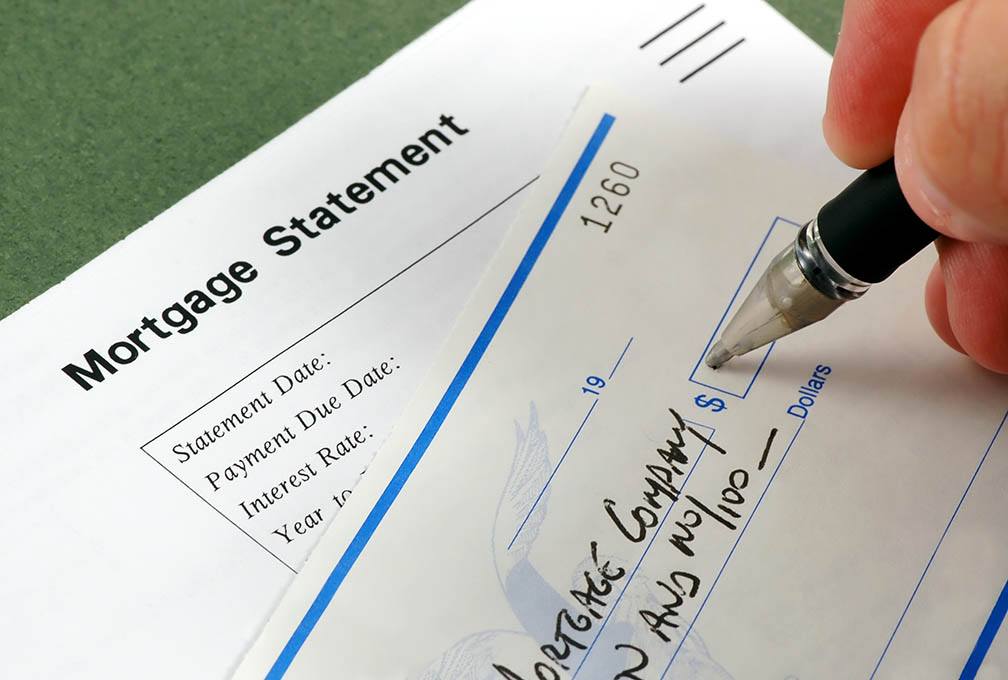What’s Ahead For Mortgage Rates This Week – February 12th, 2018
 Jerome “Jay” Powell was sworn in as Chair of the Federal Reserve amidst wild fluctuations in U.S. stock markets. Analysts attributed sliding stock prices to fears over inflation.
Jerome “Jay” Powell was sworn in as Chair of the Federal Reserve amidst wild fluctuations in U.S. stock markets. Analysts attributed sliding stock prices to fears over inflation.
Mr. Powell, who follows former Fed Chair Janet Yellen, introduced himself via a video clip on the Fed’s website. Weekly readings on mortgage rates and new jobless claims were also released.
New Fed Chair Promises “Transparency“ in Video Introduction
In a video introduction posted on the Fed’s website, new Fed Chair Jay Powell promised that the Fed would explain “what we are doing and why we are doing it.” Mr. Powell did not address stock market volatility but said that monetary policy decisions would be made based on the Fed’s dual mandate of achieving maximum employment and price stability along with economic growth.
Mr. Powell took leadership of the Fed as the national unemployment rate dipped to 4.10 percent.
Mr. Powell is an attorney by profession and is the first Fed Chair not to hold a PhD in economics in more than 30 years.
Former Treasury Secretary Advises Against Raising Rates Too Fast
Former Obama administration Treasury Secretary Larry Summers cautioned against raising rates too fast: “If the Fed raises rates sufficiently to assure financial stability, there is a risk that the economy will slow too much.
When the Federal Reserve raises its target federal funds rate financial institutions, mortgage lenders and retail lenders usually follow suit.
Mortgage Rates Rise, New Jobless Claims Fall
Freddie Mac reported higher mortgage rates last week. The average rate for a 30-year fixed rate mortgage was 10 basis points higher at 4.32 percent; the average rate for a 15-year fixed rate mortgage rose by nine basis points to 3.77 percent.
The average rate for a 5/1 adjustable rate mortgage gained four basis points to 3.57 percent. Discount points averaged 0.60 percent, 0.50 percent and 0.40 percent respectively.
New jobless claims fell to their lowest level since the 1970s. 221,000 first-time claims were filed as compared to 232.000 new claims expected and the prior week’s reading of 230,000 new claims filed.
What‘s Ahead
This week’s economic news releases include readings on inflation, retail sales and the National Association of Home Builders Housing Market Indices. Readings on housing starts and building permits issued will also be released, along with weekly readings on mortgage rates and new unemployment claims.

 When it comes to real estate, there are always going to be upswings in the market that will have an impact on your mortgage payment and overall financial health. However, with a fluctuating market here to stay, you may be wondering how you can guard your biggest investment and your finances against rate increases. If you’re concerned about rates on the rise, here are a few tips to test out you’re fiscal well-being.
When it comes to real estate, there are always going to be upswings in the market that will have an impact on your mortgage payment and overall financial health. However, with a fluctuating market here to stay, you may be wondering how you can guard your biggest investment and your finances against rate increases. If you’re concerned about rates on the rise, here are a few tips to test out you’re fiscal well-being. The post-election period is often one of uncertainty, and the time since the 2016 election has been no different with regards to market force and the financial world. With a new administration taking office, there are many questions regarding how Donald Trump’s presidency will impact the market and your mortgage. If you’re wondering what the predictions are for the coming year, here are a few things the experts are considering.
The post-election period is often one of uncertainty, and the time since the 2016 election has been no different with regards to market force and the financial world. With a new administration taking office, there are many questions regarding how Donald Trump’s presidency will impact the market and your mortgage. If you’re wondering what the predictions are for the coming year, here are a few things the experts are considering.